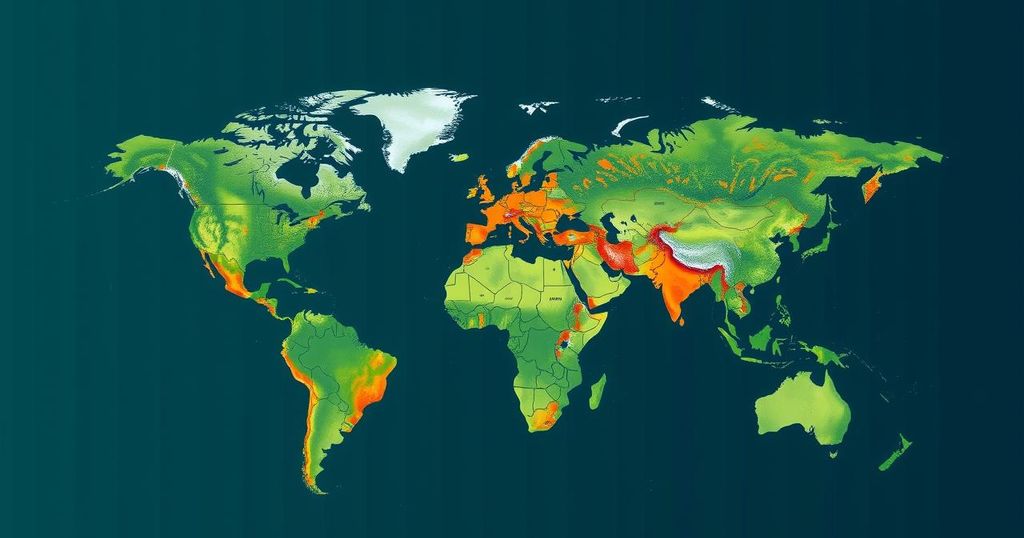The UN Environment Programme’s “Emissions Gap Report 2024” emphasizes the urgent need for a 42% cut in greenhouse gas emissions by 2030 to align with the Paris Agreement’s 1.5°C target. The report warns that failing to enhance ambition in upcoming pledges could lead to a temperature rise of 2.6°C to 3.1°C, resulting in severe global consequences. It calls for immediate action and increased investment to achieve substantial emissions cuts, especially from G20 nations, which are responsible for the majority of emissions.
A recent report from the UN Environment Programme (UNEP) underscores the urgent need for nations to collectively reduce greenhouse gas emissions by 42% by 2030 and by 57% by 2035 to stay aligned with the Paris Agreement’s goal of limiting global warming to 1.5°C. Updated Nationally Determined Contributions (NDCs) are expected to be submitted ahead of the COP30 climate talks scheduled to take place in Brazil in early next year. The “Emissions Gap Report 2024: No more hot air … please!” indicates that without swift and increased ambition in these submissions, the world could witness a temperature rise of between 2.6°C and 3.1°C by the end of the century, resulting in catastrophic impacts on ecosystems and economies. The report emphasizes the critical nature of expanded action, noting that following the current paths would lead to severe climatic consequences. For instance, pursuing only existing unconditional NDCs could yield a 2.8°C increase in global temperatures, while adherence to existing policies alone could push this figure to 3.1°C. The UN Secretary-General, António Guterres, highlighted the tangible repercussions of increased emissions, linking them directly to more frequent and intense climate-related disasters. To avoid further temperature increases, the report illustrates that nations must cut emissions by 28% by 2030 and achieve a 37% reduction relative to 2019 levels by 2035. UNEP Executive Director, Inger Andersen, called for unprecedented global mobilization to achieve these targets. The report outlines that while the technical potential for emissions reductions exists—up to 31 gigatons by 2030 and 41 gigatons by 2035—this requires a significant annual reduction in emissions and a substantial increase in investment in mitigation strategies. Meanwhile, G20 nations, which account for the majority of global emissions, are urged to take a leading role in implementing these measures.
The backdrop of the report is steeped in heightened climate crisis awareness, with rising global temperatures and extreme weather events pervasive in recent years. The Paris Agreement established a global framework to limit temperature increases to well below 2°C, with aspirations for 1.5°C. The significance of the upcoming COP30 talks lies in their potential to catalyze substantial global action towards achieving these crucial climate targets. The report specifically assesses that current ambitions are insufficient and emphasizes a need for immediate, tangible action from all nations to bridge the emissions gap.
In conclusion, the UNEP’s “Emissions Gap Report 2024” serves as a clarion call for immediate and drastic action regarding global emissions reductions. Nations must pledge significant cuts to meet the Paris Agreement targets and avert catastrophic climate impacts. The report illustrates that while opportunities for mitigation exist, they demand ambitious commitments, robust planning, and increased investment at an unprecedented scale. The cooperation, particularly from G20 nations, is paramount in ensuring that the world remains on track for a sustainable and prosperous future.
Original Source: phys.org






